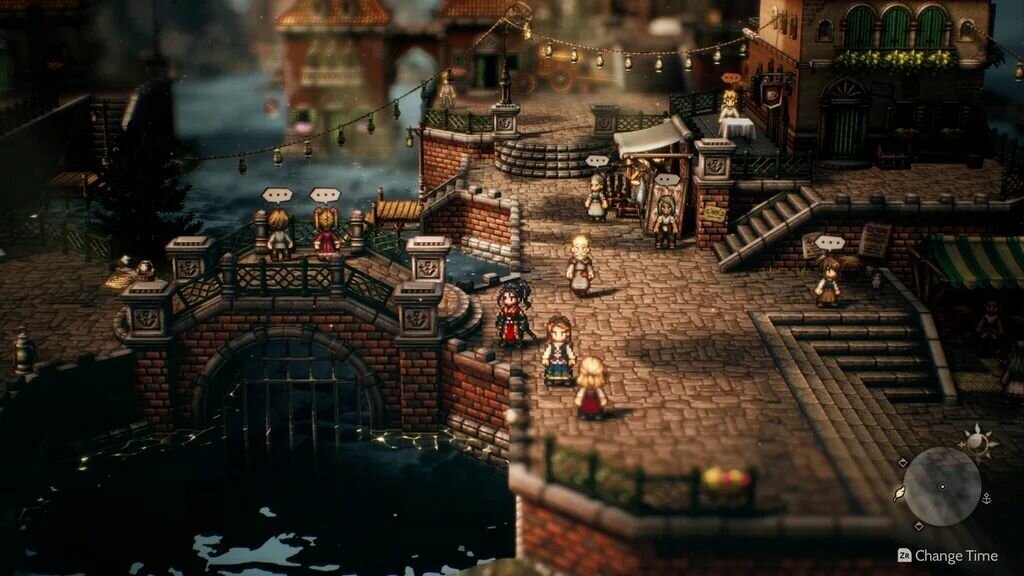In the ever-evolving landscape of console generations, one unspoken expectation from consumers has long been the option for a seamless transition when upgrading hardware. Whether it`s a free patch, a paid upgrade, or even a simple cross-generation license, the industry has, for the most part, adapted. Yet, with the impending release of the Nintendo Switch 2, Square Enix appears to be charting a peculiar course for its highly anticipated RPG, Octopath Traveler 0. The announcement suggests a policy that is not just unusual, but potentially a disservice to its dedicated fanbase, creating a “zero-sum” situation where players gain little from their loyalty.
The Unfortunate Case of Octopath Traveler 0
The title Octopath Traveler 0 might, for some, now unfortunately evoke a different meaning: “zero” upgrade paths. Square Enix has confirmed, to the collective dismay of many, that there will be no mechanism—neither free nor paid—to transition ownership of the game from a Nintendo Switch version to its upcoming Nintendo Switch 2 counterpart. This means that if you purchase the game on the current Switch and later decide to upgrade to the Switch 2 for an enhanced experience, you will, in essence, be required to purchase the game again.
This stance was clarified by the publisher on Bluesky, stating quite unequivocally:
“It is not possible to upgrade from the Switch version to the Switch 2 version once purchased. There are also no plans for an option to upgrade to the Switch 2 version in the future. Please make sure you purchase the correct version.”
While making sure one purchases the “correct” version sounds reasonable on paper, it places an unnecessary burden on consumers navigating a console transition. It forces a choice between playing on an aging console or re-investing in a title they already own, a decision that feels decidedly out of step with contemporary industry practices.
An Industry Outlier, Even for Square Enix?
What makes Square Enix`s position particularly perplexing is its inconsistency. The gaming industry, broadly speaking, has largely embraced cross-generation compatibility and upgrade options. Many developers offer free performance patches, enhanced editions at a nominal fee, or even full game transfers for titles spanning current and next-gen consoles. This approach acknowledges the investment players make in their game libraries and fosters goodwill.
Even within Square Enix`s own portfolio, this decision for Octopath Traveler 0 stands as an anomaly. Notably, the upcoming remake of Final Fantasy Tactics: The Ivalice Chronicles, also from Square Enix, is confirmed to support a free upgrade path between the Switch and Switch 2. One might charitably wonder if this indicates internal communication challenges, or perhaps a rather selective application of consumer-friendly policies. The irony is not lost on a community that values fairness and consistency from its beloved publishers.
The Disappearing Cartridge: A Blow to Preservationists
Adding another layer of concern for physical media enthusiasts is the announced format for the Nintendo Switch 2 version of Octopath Traveler 0. Instead of a traditional game cartridge containing all the necessary files, the Switch 2 release will reportedly utilize a “Game-Key card.” For the uninitiated, this is essentially a fancy term for a box containing a download code.
For game preservationists and collectors, this trend is a sore spot. A physical cartridge ensures that the game is truly “owned” and playable regardless of digital storefront availability or server longevity. A download code, however, ties ownership to digital licenses and the continued existence of online services. It transforms a tangible asset into a digital right, dependent on external infrastructure. This shift forces players into a difficult choice:
- The Switch (original) version: Likely comes on a traditional cartridge, offering true physical ownership, but on an older console with potentially inferior performance.
- The Switch 2 version: Offers enhanced performance but comes as a download code, compromising the spirit of physical collection and raising long-term preservation questions.
The sentiment among the community is clear: neither option is ideal. Players are left feeling that they are being asked to compromise on either performance or true ownership, rather than being offered a comprehensive, consumer-centric solution.
The Broader Implications for Gaming`s Future
The case of Octopath Traveler 0, while specific, highlights a broader tension within the gaming industry. As digital distribution increasingly dominates, the lines between “owning” a game and “licensing” access to it become ever blurrier. Decisions like these by major publishers fuel the debate on consumer rights in a digital age and the future viability of physical media.
For players, it`s a reminder to exercise caution and make informed purchasing decisions. For Square Enix, and indeed other publishers, it`s a critical moment to reflect on the long-term impact of such policies on consumer trust and loyalty. After all, in a market saturated with choice, treating your customers as valued investors in your creative works, rather than mere transactional entities, often yields the greatest dividends.
Octopath Traveler 0 is set to launch on December 4, 2025, across Nintendo Switch, Nintendo Switch 2, PS5, PS4, Xbox Series X|S, and PC. The question remains: which version will you choose, and at what cost to your gaming principles?

